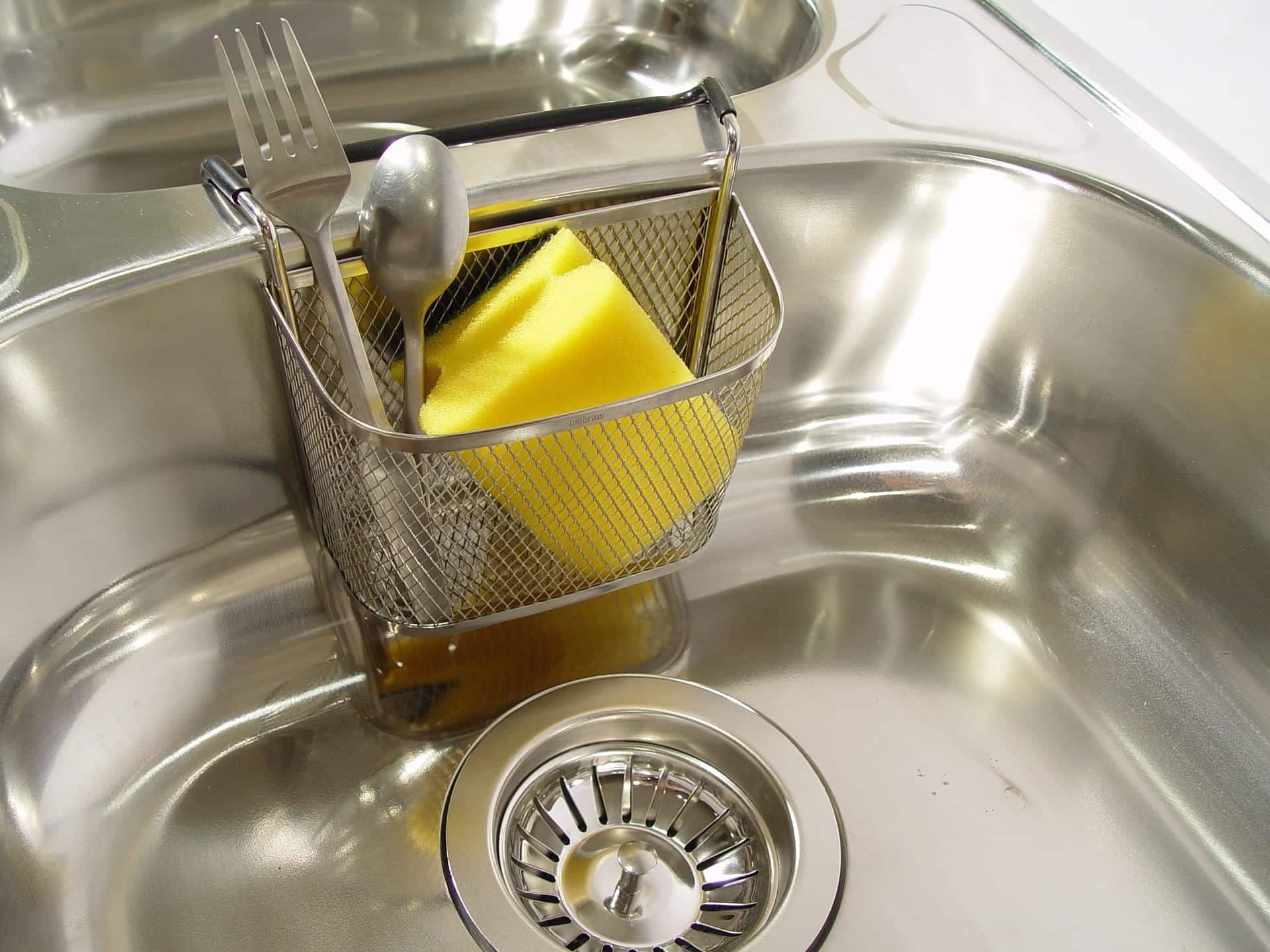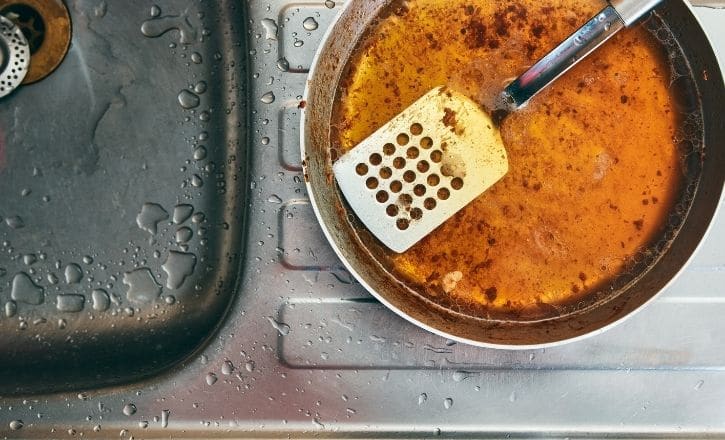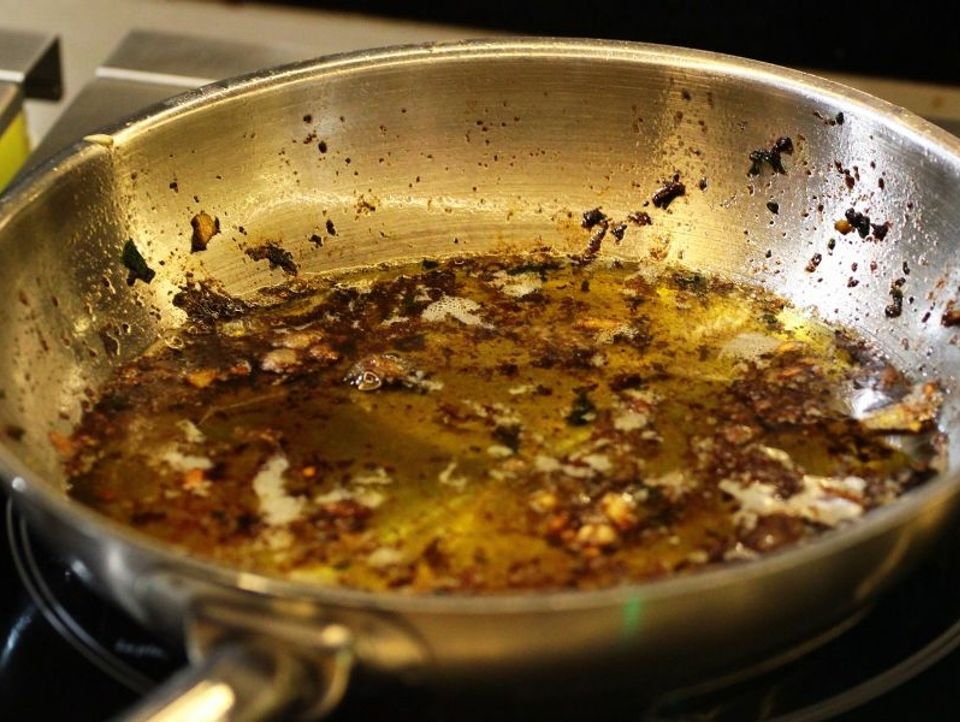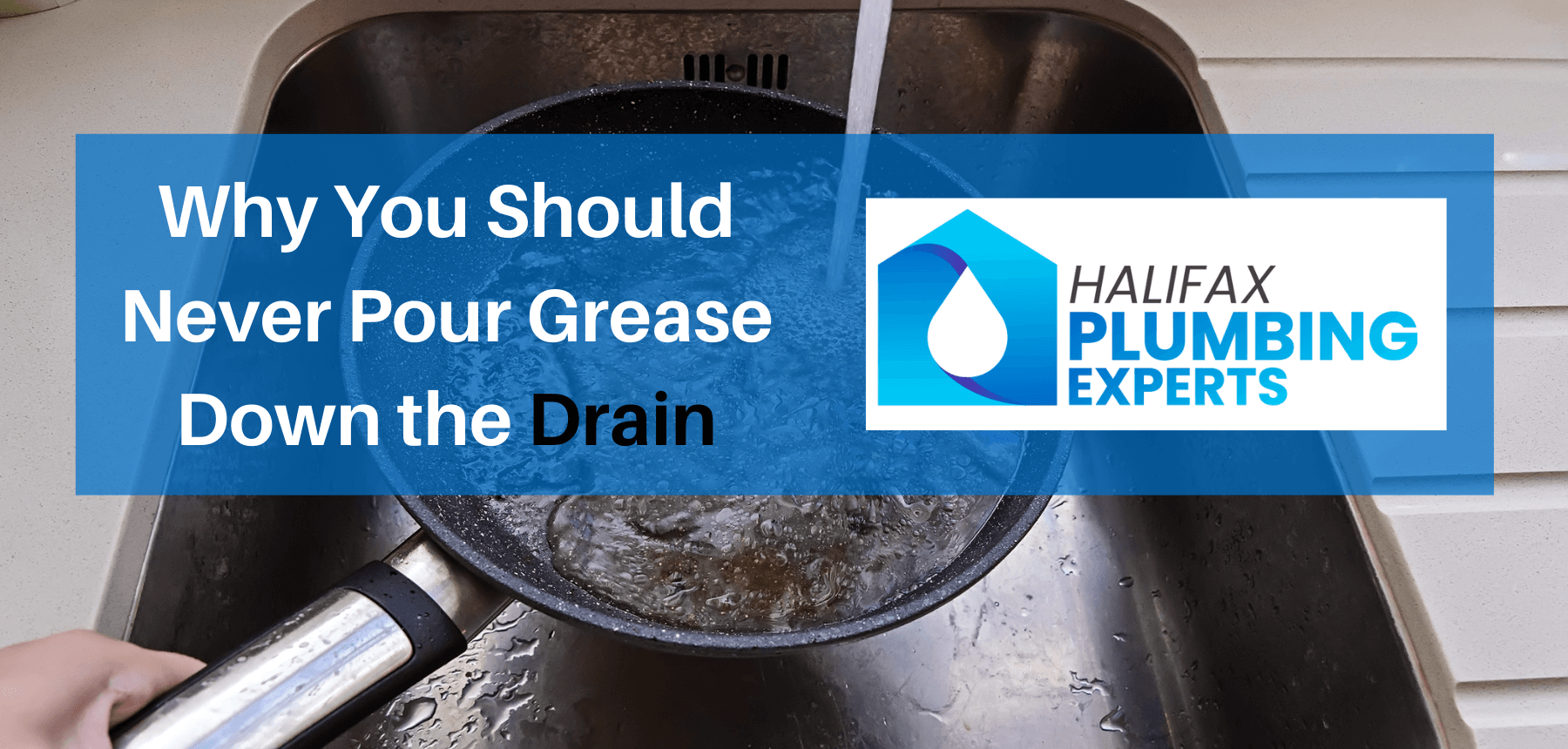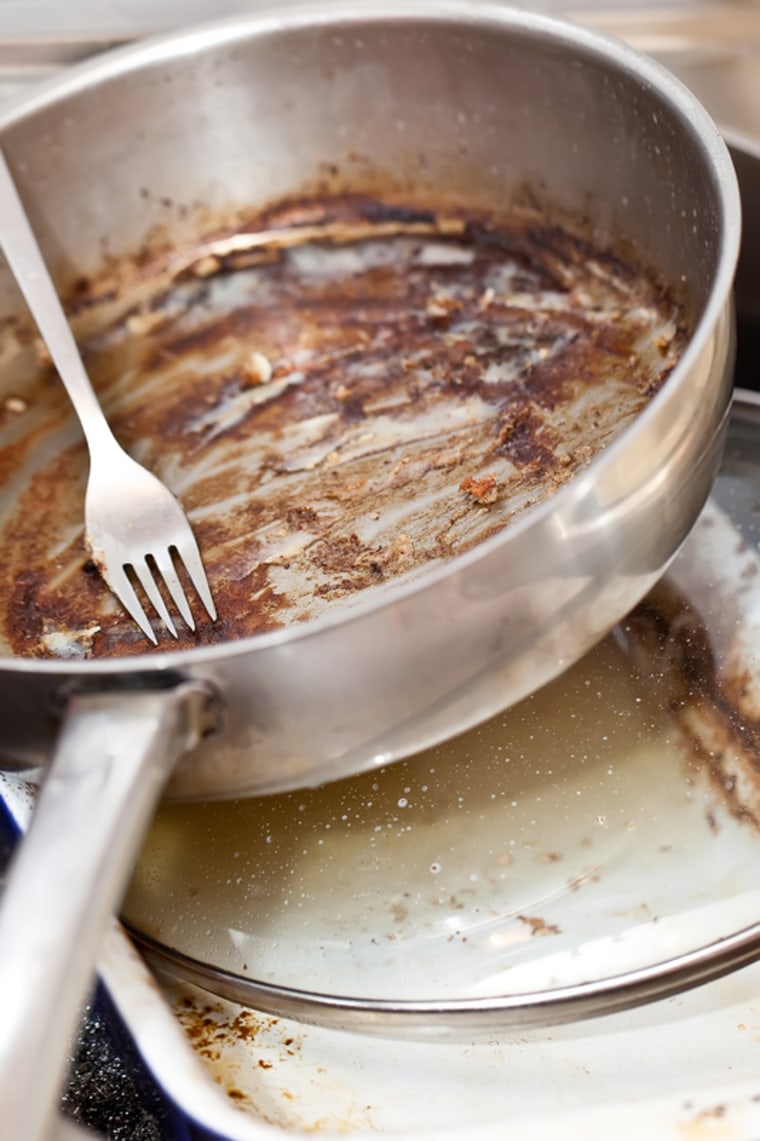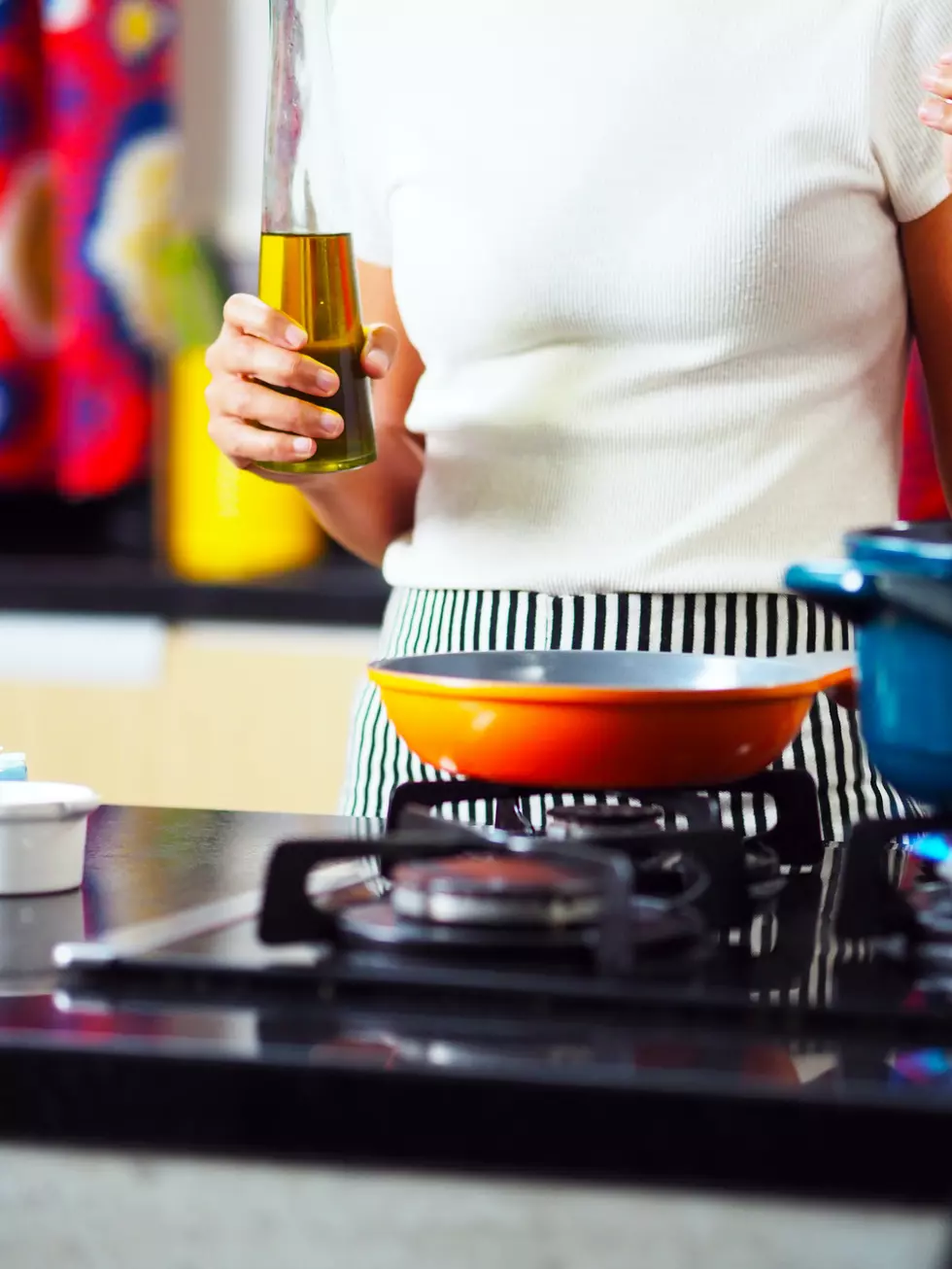Grease is a common byproduct of cooking, and it can be tempting to just pour it down the kitchen sink and be done with it. But did you know that this seemingly harmless practice can actually cause serious damage to your plumbing system and the environment? When grease is poured down a sink, it can solidify and build up in the pipes, causing clogs and blockages. This can lead to slow draining sinks, foul odors, and even sewage backups in your home. Not only is this inconvenient and costly to fix, but it can also pose a health hazard as bacteria and germs can thrive in the clogged pipes. But the damage doesn't stop there. When grease enters the sewer system, it can combine with other substances and form large, solid masses known as "fatbergs." These fatbergs can clog up entire sewer lines and cause sewage overflows, which not only create a foul smell but can also contaminate water sources and harm wildlife.1. The dangers of pouring grease down a kitchen sink
Now that we know the dangers of pouring grease down the kitchen sink, what are some alternative ways to dispose of it? Option 1: Let it solidify and throw it in the trash Option 2: Use it for future cooking Option 3: Recycle it2. Alternatives to pouring grease down the sink
One simple solution is to let the grease cool and solidify before throwing it in the trash. You can use a designated container or even an empty can or jar to collect the grease, and once it has hardened, you can throw it in the garbage. Just make sure to wipe out any remaining grease in the pan with a paper towel before washing it.
Another way to dispose of grease is to save it for future cooking. If you regularly use the same type of oil or grease, you can strain and store it in a sealed container for later use. Just make sure to keep it in a cool, dark place and use it within a few weeks.
Did you know that some cities have programs that recycle used cooking oil and grease? Check with your local waste management company to see if they offer this service. You can also search for recycling centers in your area that accept cooking oil and grease.
We've all been there – you're cooking and accidentally spill some grease on the stove or countertop. It's important to clean it up properly to prevent any damage or accidents. Step 1: Absorb the excess grease Step 2: Sprinkle with baking soda Step 3: Wipe and rinse3. How to clean up a grease spill
If there is still liquid grease, use paper towels or a cloth to absorb as much of it as possible. Don't use water as it will only spread the grease and make the situation worse.
Once you have removed the excess grease, sprinkle baking soda over the spill. Baking soda is a natural absorbent and will help soak up any remaining grease.
Using a clean cloth or paper towels, wipe the area to remove the baking soda and any remaining grease. Rinse with warm, soapy water to ensure all the grease is removed.
Prevention is always better than a cure, and this definitely applies to keeping grease out of your kitchen sink. Tip 1: Use a strainer Tip 2: Wipe off excess grease Tip 3: Use hot water and soap Tip 4: Avoid using the garbage disposal4. Tips to prevent grease from going down the sink
Using a strainer in your sink can help catch any food scraps or grease that may accidentally go down the drain. Empty the strainer regularly to prevent any build-up.
Before washing dishes or cooking utensils, wipe off any excess grease with a paper towel. This will prevent it from going down the sink and causing clogs.
After cooking with oil or grease, run hot water and soap down the drain to help break down any remaining grease and prevent it from solidifying in the pipes.
While convenient, using a garbage disposal to get rid of food scraps can also push grease further down the pipes and cause clogs. Instead, throw food scraps in the trash or compost them.
Even with all these preventative measures, it's still important to schedule regular plumbing maintenance to ensure everything is running smoothly. A plumber can inspect your pipes and catch any potential issues before they become major problems. They can also clean out any build-up of grease or other substances in your pipes to keep them clear and functioning properly. This will not only save you from costly repairs but also help protect the environment.5. The importance of regular plumbing maintenance
We've already mentioned how pouring grease down the sink can harm the environment, but the impact goes beyond just clogs and fatbergs. When grease enters the sewer system, it can also cause problems at wastewater treatment plants. The grease can coat and clog the equipment, making it difficult for the plant to properly treat the water before releasing it back into the environment. In addition, the chemicals and toxins in grease can harm aquatic life and disrupt ecosystems. It's important to properly dispose of grease to protect our planet and its inhabitants.6. The impact of grease on the environment
For commercial kitchens or households that produce a lot of grease, installing a grease trap can be an effective way to prevent it from entering the sewer system. A grease trap is a plumbing device that intercepts and collects grease, preventing it from going down the drain. The trap needs to be regularly cleaned and maintained to continue functioning properly.7. Grease traps and their purpose
The consequences of pouring grease down the sink can be costly and damaging, not just to your plumbing system but also to the environment. In addition to clogs and fatbergs, grease can also cause sewer backups, which can result in expensive repairs and potential health hazards. It can also lead to higher water bills as your plumbing works harder to push through the clogs. On a larger scale, the impact on the environment can be devastating, from polluting water sources to harming wildlife. By taking simple steps to properly dispose of grease, we can all do our part in protecting the planet.8. The consequences of pouring grease down the sink
Now that you know the dangers of pouring grease down the kitchen sink, it's important to educate others on this topic as well. Teach your family, friends, and coworkers about the proper ways to dispose of grease and the impact it can have on our plumbing systems and the environment. Spread the word and help make a positive change.9. The importance of educating others
Grease may seem harmless, but it's important to be mindful of how we dispose of it. By following the tips mentioned above and properly disposing of grease, we can avoid costly plumbing issues, protect the environment, and create a cleaner and healthier living space for ourselves and future generations. Remember, the next time you're tempted to pour grease down the kitchen sink, think twice and choose a more responsible and sustainable method of disposal.10. Conclusion
Why Pouring Grease Down a Kitchen Sink is a Bad Idea

Many of us have been guilty of pouring leftover cooking grease down the kitchen sink, thinking it's a quick and easy way to dispose of it. However, this seemingly harmless habit can actually cause serious damage to your plumbing system and the environment. In this article, we'll dive into why pouring grease down a kitchen sink is a bad idea and what you should do instead.
The Effects of Pouring Grease Down a Kitchen Sink
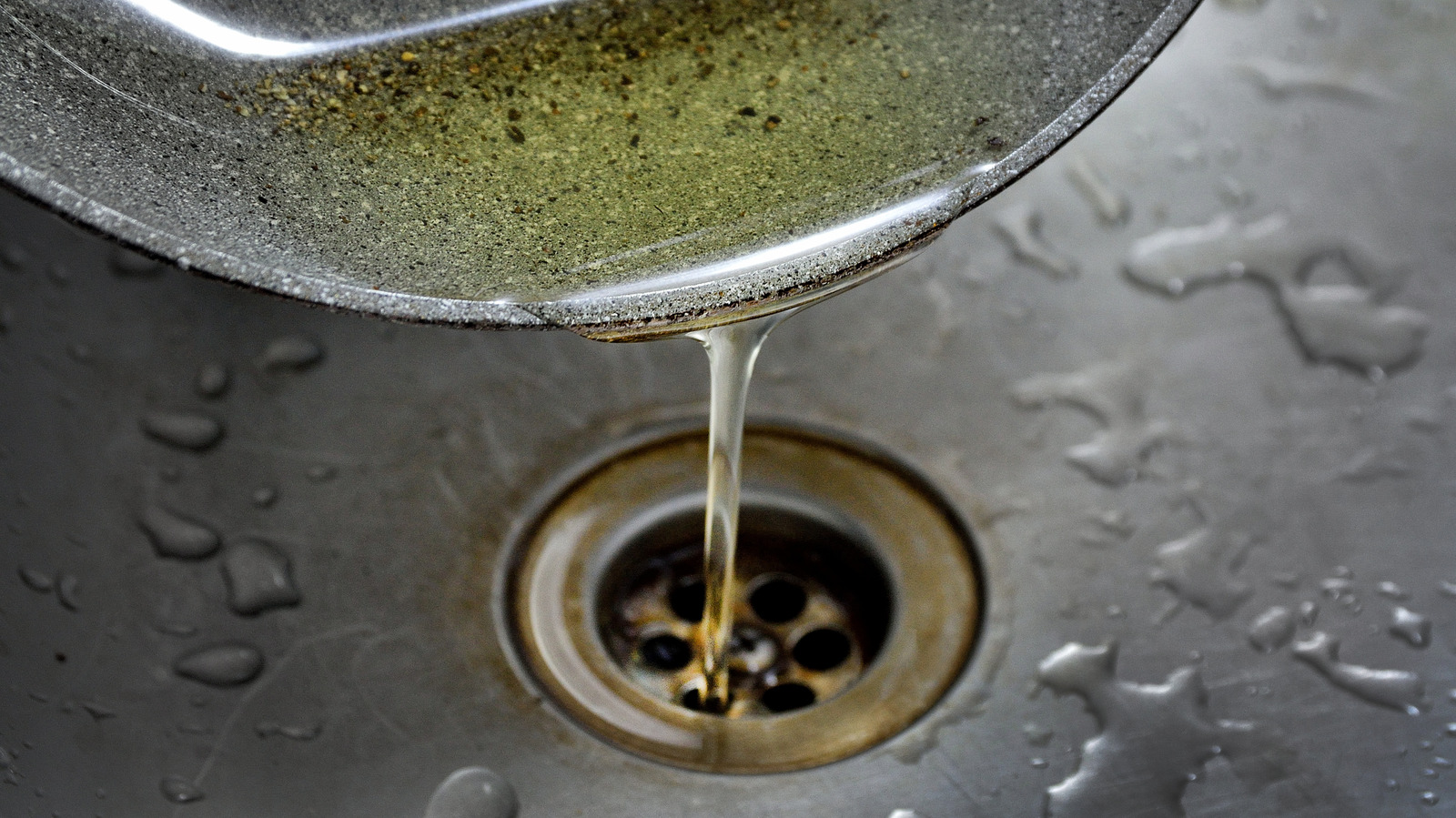
When hot grease is poured down a kitchen sink, it may seem like it disappears without a trace. However, once it cools down, it will solidify and stick to the inside of your pipes. Over time, this buildup of grease can cause clogs and blockages, leading to slow draining sinks and even sewage backups. Not only is this frustrating to deal with, but it can also be costly to fix.
Additionally, grease can also attract other debris and food particles, exacerbating the clogging issue. This can also lead to unpleasant odors emanating from your sink, making it an unhygienic and uncomfortable space to work in.
The Environmental Impact
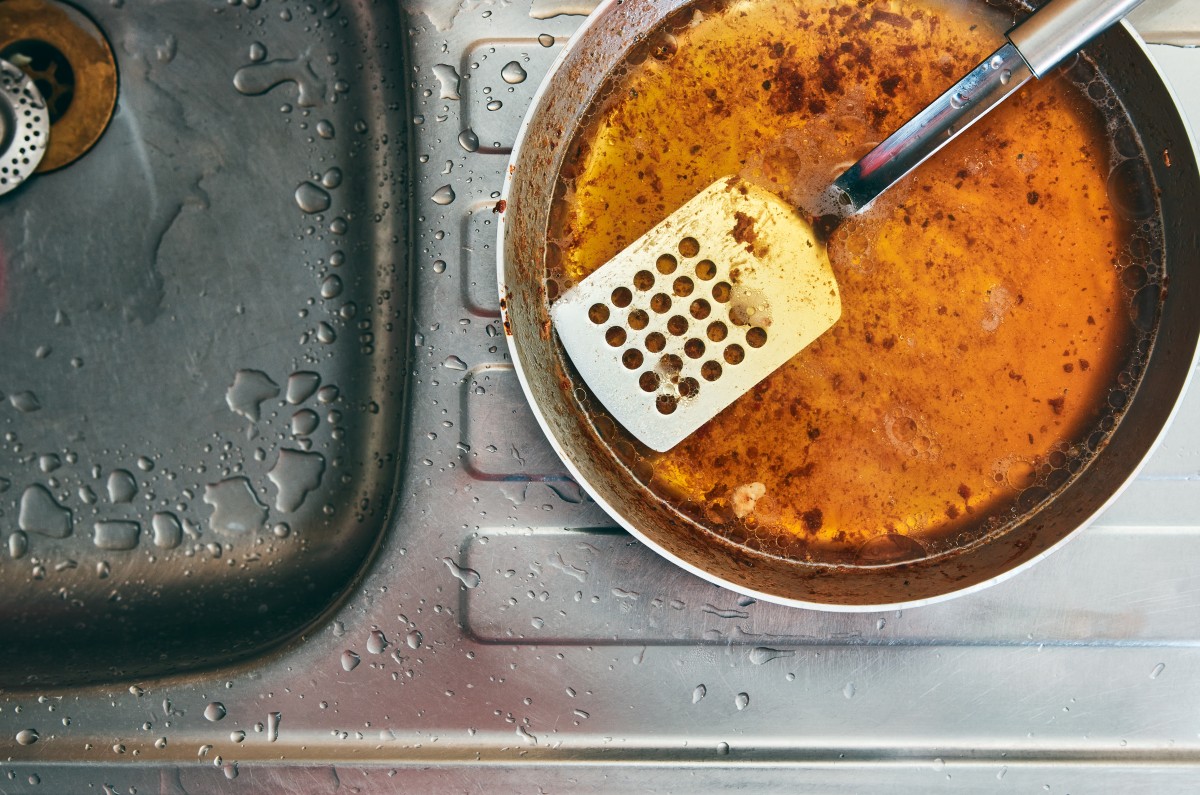
Aside from the damage it can cause to your plumbing system, pouring grease down a kitchen sink also has a negative impact on the environment. When grease enters the sewer system, it can mix with other chemicals and form large masses called "fatbergs." These fatbergs can block sewage flow and cause sewage spills, which can contaminate water sources and harm wildlife.
Furthermore, when grease is disposed of in landfills, it can take hundreds of years to decompose, releasing harmful chemicals into the environment. This not only affects the surrounding ecosystem but also contributes to the growing issue of climate change.
Proper Disposal of Grease

So, what should you do with leftover cooking grease? The best and most responsible way to dispose of it is to let it cool down and solidify, then scrape it into a sealable container and throw it in the trash. You can also recycle used cooking oil at designated recycling facilities or use it for composting.
It's also important to note that not all types of grease should be poured down the sink, including motor oil, paint, and other chemicals. These should be disposed of at designated hazardous waste facilities to prevent harm to the environment.
Conclusion
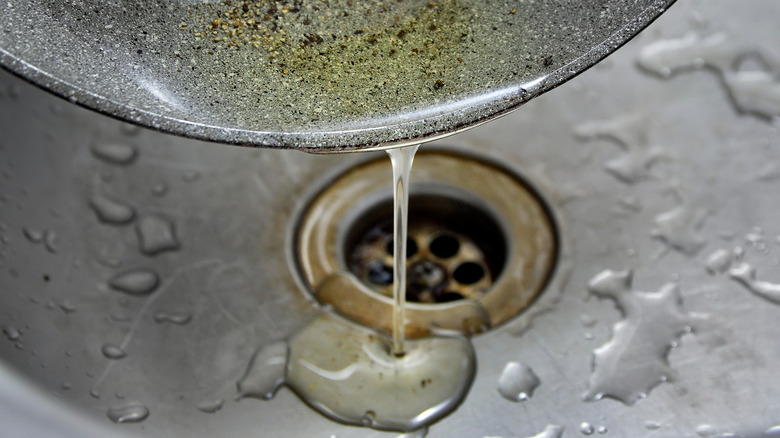
In conclusion, pouring grease down a kitchen sink is a bad idea due to the potential damage it can cause to your plumbing system and the environment. It's important to responsibly dispose of grease by letting it cool and solidify before throwing it in the trash or recycling it. By taking these small steps, we can all do our part in protecting our homes and the planet.



